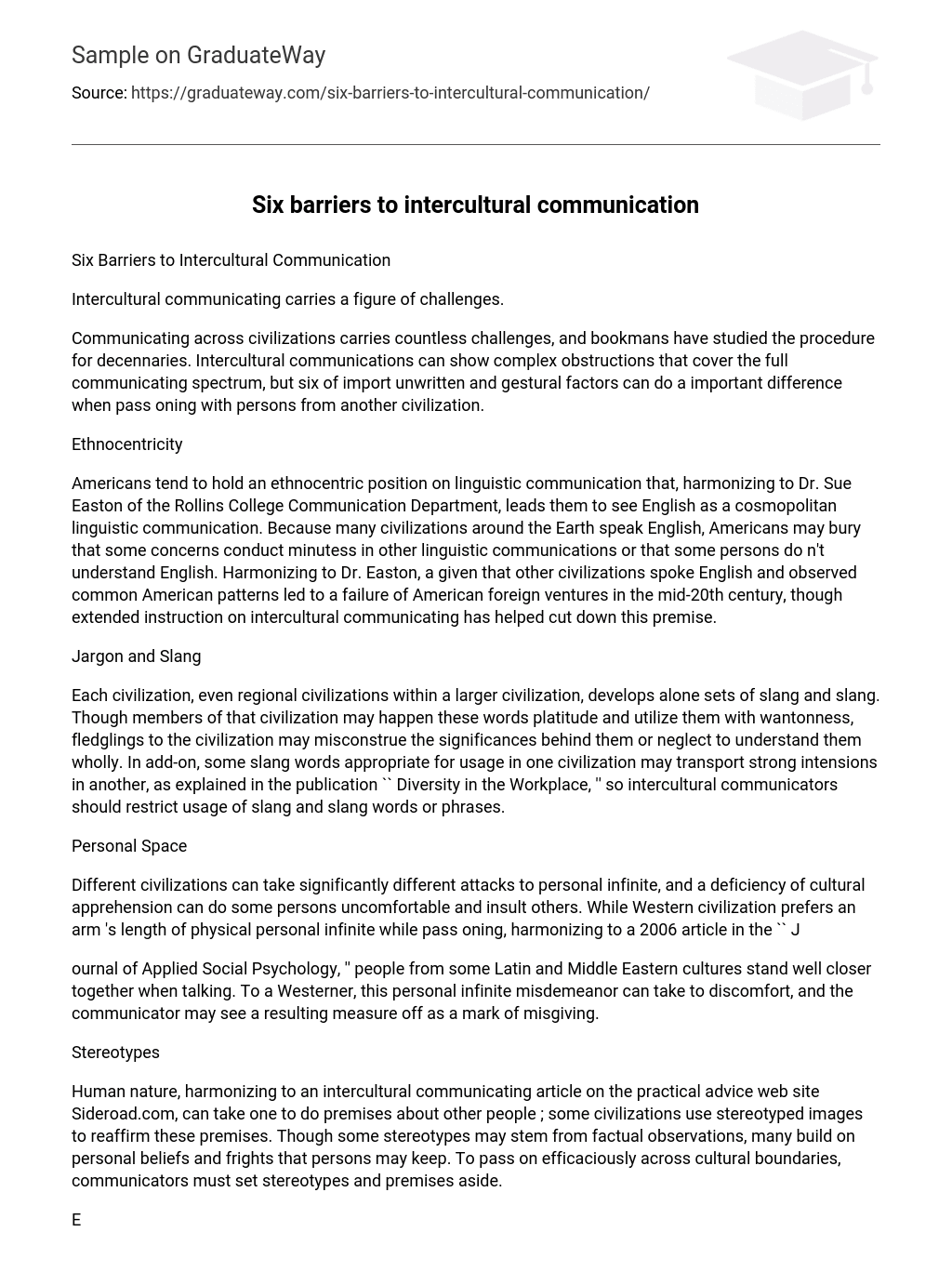Communicating across civilizations carries countless challenges, and bookmans have studied the procedure for decennaries. Intercultural communications can show complex obstructions that cover the full communicating spectrum, but six of import unwritten and gestural factors can do a important difference when pass oning with persons from another civilization.
Ethnocentricity
Americans tend to hold an ethnocentric position on linguistic communication that, harmonizing to Dr. Sue Easton of the Rollins College Communication Department, leads them to see English as a cosmopolitan linguistic communication. Because many civilizations around the Earth speak English, Americans may bury that some concerns conduct minutess in other linguistic communications or that some persons do n’t understand English. Harmonizing to Dr. Easton, a given that other civilizations spoke English and observed common American patterns led to a failure of American foreign ventures in the mid-20th century, though extended instruction on intercultural communicating has helped cut down this premise.
Jargon and Slang
Each civilization, even regional civilizations within a larger civilization, develops alone sets of slang and slang. Though members of that civilization may happen these words platitude and utilize them with wantonness, fledglings to the civilization may misconstrue the significances behind them or neglect to understand them wholly. In add-on, some slang words appropriate for usage in one civilization may transport strong intensions in another, as explained in the publication “ Diversity in the Workplace, ” so intercultural communicators should restrict usage of slang and slang words or phrases.
Personal Space
Different civilizations can take significantly different attacks to personal infinite, and a deficiency of cultural apprehension can do some persons uncomfortable and insult others. While Western civilization prefers an arm ‘s length of physical personal infinite while pass oning, harmonizing to a 2006 article in the “ J
ournal of Applied Social Psychology, ” people from some Latin and Middle Eastern cultures stand well closer together when talking. To a Westerner, this personal infinite misdemeanor can take to discomfort, and the communicator may see a resulting measure off as a mark of misgiving.
Stereotypes
Human nature, harmonizing to an intercultural communicating article on the practical advice web site Sideroad.com, can take one to do premises about other people ; some civilizations use stereotyped images to reaffirm these premises. Though some stereotypes may stem from factual observations, many build on personal beliefs and frights that persons may keep. To pass on efficaciously across cultural boundaries, communicators must set stereotypes and premises aside.
Eye Contact
In the United States, communicators tend to keep direct oculus contact with others during one-on-one communicating, and do sporadic oculus contact with an audience when pass oning with big groups. Though direct oculus contact may typify regard in Western civilizations, harmonizing to the communications book “ Intercultural Communication: A Reader, ” other civilizations view it otherwise. Native American and some Eastern civilizations, for illustration, see direct oculus contact disrespectful, and a failure to understand these cultural norms sing oculus contact can make important intercultural communicating obstructions.
Time
Different civilizations maintain markedly different attacks to clip, and communicators who do n’t understand a civilization ‘s clip orientation may see trouble constructing relationships in that civilization. Though Americans view clip as a trade good, other civilizations take a much more slack attack to the topic ; some Latin civilizations, for illustration, anticipate parties to be every bit much as 30 proceedingss tardily when carry oning concern. Communicators from a civilization that views clip as a trade good must forbear from going upset when a party from another civilization arrives tardily, as the late communicator may see such defeat as insensitive, demanding and violative.





